Being a showrunner is one of the most unique and important jobs in contemporary television. The position is a combination of creativity, consistency and managerial responsibility. They’re the behind-the-scenes masters and the ones that make everything happen. But what exactly does the showrunner’s job entail? We take a look…
Table of Contents
What is a Showrunner?
A showrunner is the person who has overall creative authority for a television series.
- This person is often, but not always, the creator of the show.
- They’re typically listed as the ‘executive producer’.
- Usually, they have a writing background and run the series from this perspective.
- Additionally, they handle some of the show’s practical elements as well as its creative ones.
Some showrunners create original concepts for a series. Others are brought in to take on concepts that were created by another executive or creative. Either way, they’re the lead on the series as a whole; the person that holds the series together from episode to episode, season to season.
While the other positions (staff writers, story editors, producers, directors) are fundamental cogs in the system, the showrunner is the person that calls the shots and makes the final decisions. They oversee everything and ensure that things run smoothly in all aspects of production, from writing to directing to casting.
Ultimately, the showrunner is a visionary. They have a clear overall picture and birds-eye-view for the series and its story.
- They especially support the writers’ room, making sure the writers get the series’ vision across.
- Whilst they also communicate the show’s creative direction to the studio and network executives.
In film, a director will lead the way. But in TV, there are so many moving parts over a long period of time that a showrunner is needed to steer the ship. Creating TV involves realizing many scripts, written by different writers and directed by different directors, often over many years.
So a showrunner is supposed to be the steady hand. They maintain a consistent creative voice in a constantly shifting, multi-faceted environment.
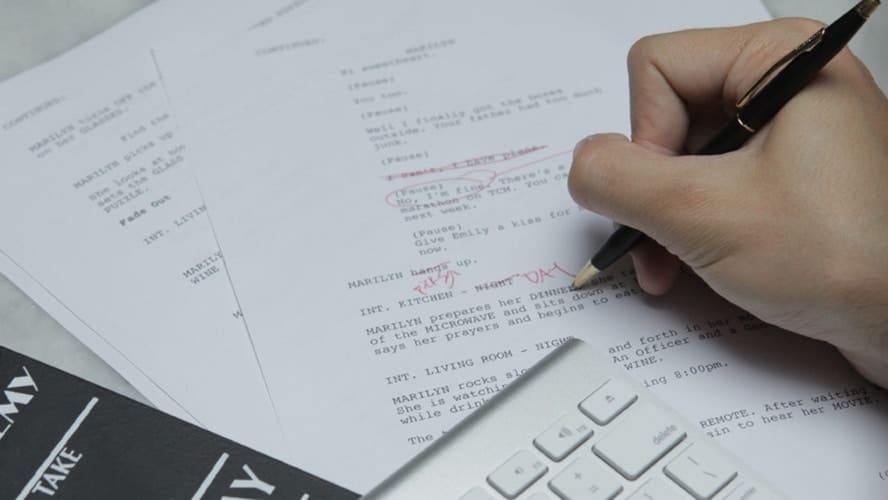
What are a Showrunner’s Responsibilities?
Showrunners deal with many behind-the-scenes elements to ensure the show functions. The role can be quite broad and it can vary from case to case. However, there are several jobs that a showrunner will typically take care of:
- They’re responsible for handling script finalization.
- They are also the go-to boss in terms of approving deadlines, budgeting, and finances.
- The showrunner may also select and approve department heads; writing staff, cinematographers, production design, and casting, for instance.
- Furthermore, the showrunner acts as a liaison with the network and/or studio. This might include discussing the requirements and logistics of final scripts, cuts, air dates, and show timings.
Probably the key responsibility though is overseeing the writers’ room:
- The showrunner will supervise outlines for episodes and seasons. They’ll also put a stamp of approval on each script.
- They will seek to protect the creative vision and voice of the show in its entirety.
- Because there will likely be many contributing writers, it is the showrunner’s responsibility to maintain the overarching voice and tone. This way, no matter how many members of the writing staff contribute to the season as a whole, there will be an authorial voice.
The showrunner will typically be from a writing background. But being that the showrunner has so many other responsibilities, writing often takes a backseat.
What replaces this though is a guiding hand in all elements of the writing. The showrunner might not be directly writing dialogue and scene descriptions. However, they’re still overseeing these details, checking if they track with the overall vision, style and direction for the series.
Showrunners vs Producers vs Directors
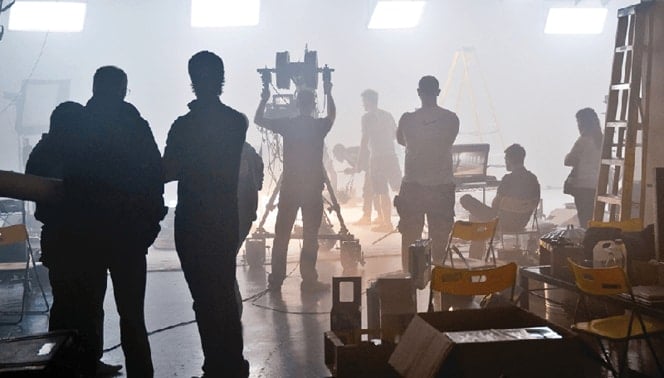
So where does the showrunner sit amidst the other key contributing positions?
Producing
While showrunners are the executive producers, there are several levels of producers who might have slightly different skill sets. Each may oversee a particular aspect of the production. Some might be involved in the day-to-day running of the show. Others may be in charge of budget or post-production.
If production is divided up in this way, the showrunner will be responsible for making sure each stage plays out harmoniously. The producer might also have a hand in the hiring and supervising of multiple departments, for example. But the hiring will likely be followed up by the showrunner who will, ultimately, oversee and approve the decisions.
- A producer may be responsible for the nitty-gritty, physical elements of running the production.
- But the showrunner will be handling the series as a whole. They’ll be overseeing the broad movements of all aspects of the series production.
Writing and Directing
A showrunner may also occasionally direct episodes of the series.
- Often you’ll see, for example, the showrunner will direct the first and last episode of a series.
- The same goes for writing. The showrunner may have written the script for the season finale or the first episode.
- This highlights how they’re vital for guiding the series in broad strokes. They handle the tone of the key moments that move the story forward.
Mostly though, the series will typically be written and directed by many different voices. Especially in a long-running series, there are usually so many hours of story to convey that a variety of contributors is crucial to making the series dynamic and interesting.
But again, without that overseeing eye, the show would likely lose authority, potentially overwhelmed by all the different voices involved. So the showrunner fills this gap. They give shape and structure to the variety of different elements that make up a successful TV series.
How Do You Become a Showrunner?
There is no set path to becoming a showrunner. Like many creative roles within the industry, no journey is typically the same. There are, however, some key assets that a showrunner will need to succeed. And because of the wide variety of responsibilities, a showrunner will likely have a range of experience across different roles.
1. Writing

It’s most likely that the showrunner will be from a writing background. They might have a variety of experience, but they are a writer at heart.
So if you’re looking to become a showrunner, a complete understanding of screenwriting craft is crucial. You must have a second nature feel for story structure. This is because the showrunner is responsible for guiding the story as a whole and maintaining consistency and clarity in this respect.
Showrunners are often the creator of the series idea in the first place. So they must be someone who can generate story ideas and know how to execute these ideas. And even if they’re not the creator of the series idea, they need to be someone who can take an idea and run with it.
So they must know what makes a good story, what long-lasting characters are made of and how to generate consistent engagement via elements such as pacing and structure.
2. Writers’ Room
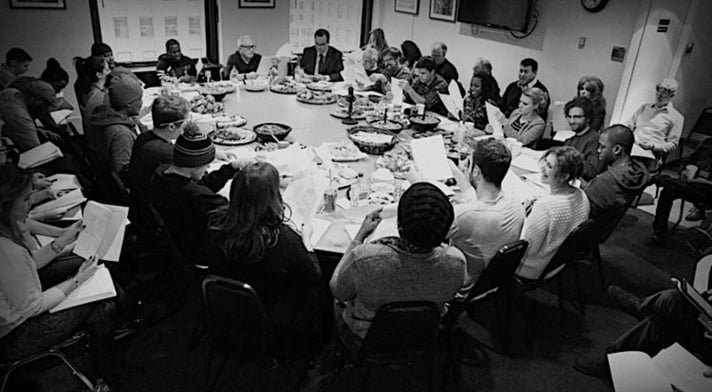
In addition to being a writer themselves, a showrunner will be better placed to succeed if they have experience of what it’s like to work with and amidst other writers. Working in writers’ rooms is one of the key ways that showrunners start out and consequently progress. They may start as a staff writer and eventually progress to head writer, for example.
As discussed, one of the key elements of being a showrunner is managing a team of writers. If the writers are the crew, the showrunner is the captain.
So if you’re looking to become a showrunner, try and get some experience working in a writers’ room, whatever that looks like. This will give insight into what a functioning writing team looks like. There’s more to writing TV than just churning out scripts from your laptop. Given the hours of story there is to express, writing for TV is a communal, often very technical process.
So observe how writers work with each other, how conflicts can be resolved, how maximum productivity can be achieved and what the experience of writing scripts and then seeing them brought to life looks like.
3. Some Production Experience
Finally, whilst a writing background is the most valuable experience for an aspiring showrunner, it also helps to have as much of an understanding of the production process as possible.
So if you’re looking to pursue being a showrunner as a career, try and get some experience of what it’s like to be in other production roles. This will help give you an intimate idea of how a production functions. You’ll (hopefully) see what works on a set and what doesn’t, who is responsible for what and what maximum efficiency looks like (or doesn’t).
This experience might manifest as a number of years as a producer or production manager, for example. Or you might work as a production assistant or runner. Whatever the level, some hands-on experience of what a production looks like will only help you have a better idea of how you might handle overseeing one as a showrunner.
Examples of Famous Showrunners
While showrunners all have similar lists of responsibilities and duties, every situation looks a bit different. Some take on larger roles in the writers’ room, some direct as well, some are more hands-on, some less so.
Let’s take a look at some examples of well-known showrunners and their experiences.
Shonda Rhimes – Grey’s Anatomy, Scandal, Inventing Anna

Perhaps one of the most famous contemporary showrunners is Shonda Rhimes. She is best known for helming shows such as Grey’s Anatomy, Private Practice, and Scandal.
And it was in writing that she started her career. She served as the screenwriter for features such as Crossroads and The Princess Diaries 2. But Grey’s Anatomy was her first big break in TV, with Rhimes acting as its creator and executive producer. It was the success of this series that led Rhimes to head multiple successful series as a showrunner for network TV.
In 2017, she would move with the times and go from network shows to Netflix, signing a huge, multi-year deal. It’s under this deal she’s produced some of her biggest hits, including Bridgerton and Inventing Anna.
Rhimes has become one of the highest-paid showrunners in Hollywood. She demonstrates how writing is an essential part of the job she so brilliantly executes. She has a keen sense of storytelling and an acute idea of the kinds of stories audiences want to see. Her shows are mainstream and approachable but she brings a screenwriter‘s eye to the stories’ execution.
Jesse Armstrong – Succession, Fresh Meat, Peep Show
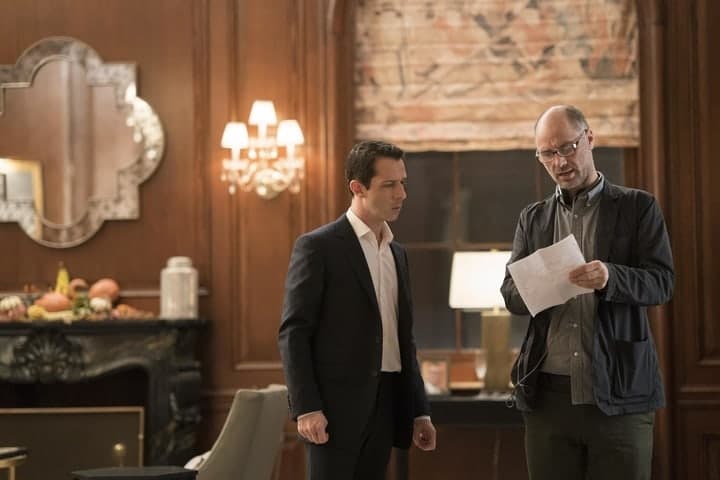
Jesse Armstrong is a British screenwriter, creator, showrunner, and executive producer. Most famously, he is the creator and showrunner of the HBO drama series Succession. He was also the co-creator of several other shows before this, including Peep Show and Fresh Meat.
Armstrong illustrates how a showrunner can maintain tone throughout a series. His background is in comedy and there’s a clear comedic tone running through everything he does, even if the subjects don’t always necessarily scream comedy.
He manages the team of writers behind Succession, and also writes and directs key episodes. The series is a great example of a show that benefits from the wide array of writers and directors that contribute but is ultimately helmed by a distinct tone.
Vince Gilligan – Breaking Bad, Better Call Saul
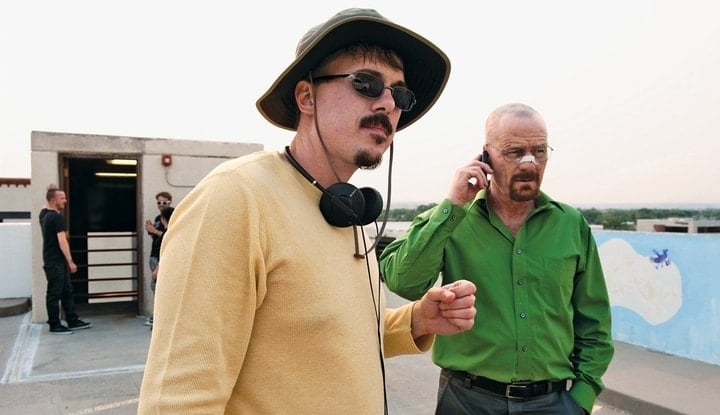
As the creator of the Breaking Bad world, Vince Gilligan has a vital role as showrunner. He helps maintain a consistent and coherent story over different series’, seasons and timelines.
Better Call Saul perhaps best demonstrates Gilligan’s strength as a showrunner. The story here is so finely woven and in tune with its sister show. And Gilligan’s role in this is key. The characters always feel consistently tethered to the same motivations. This is why the series is so rewarding; the richness of the characters and world makes it feel like a story we are stumbling into.
A spin-off always runs the risk of feeling like a capitalization on the original show’s success and nothing more. However, Vince Gilligan’s steady hand guides Better Call Saul perfectly. He keeps it in line with the thematic purpose of Breaking Bad, as well as its tone. They’re quite different shows, but they’re completely part of the same world.
His effect is demonstrated even more by the fact that he left in season 3 to pursue other ventures. He has occasionally returned to direct standout episodes but left showrunner duties to Peter Gould. Nonetheless, the robust world and storytelling practices were so finely set up that his absence as showrunner is barely perceptible.
Amy Sherman-Palladino – Gilmore Girls, The Marvelous Mrs Maisel
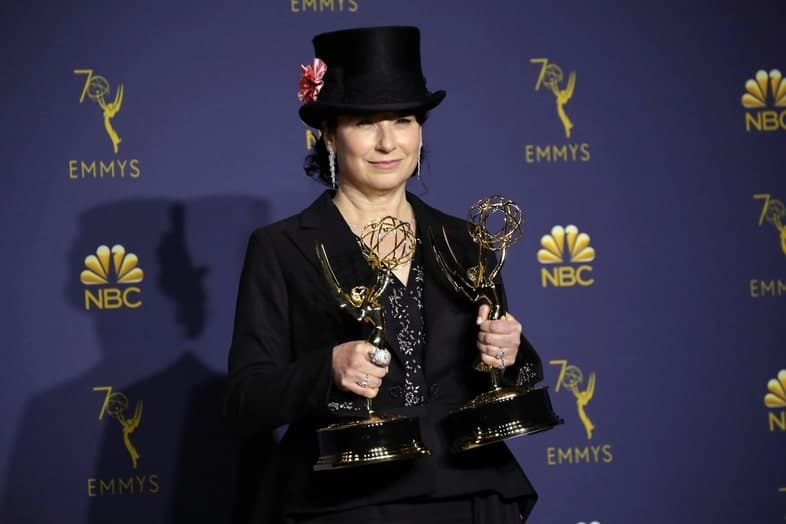
Amy Sherman-Palladino is a showrunner who is intimately involved in the shows she helms. And this is most evident from the distinct, unmistakable style that characterises her work. She typically writes and directs most episodes of her shows, often sharing the duties with her husband, Daniel Palladino.
She’s a showrunner that illustrates how the role is akin to that of a film director in that she meticulously controls the bulk of the series and consequently creates a unique vision and style. This can be seen in both of her two most standout works, Gilmore Girls and The Marvelous Mrs Maisel. Other writers and directors may occasionally come in and add vibrance and dynamism. However, her overarching presence means that her one-of-a-kind dialogue, themes and characters define the series in no uncertain terms.
The importance of her presence in creating the distinct flavor of her series is evident in the fact she was absent from Gilmore Girls‘ final season. This final season might continue with the same characters and broad tone as the previous seasons. However, there is something unmistakably different about the pace and feel of the show. This is something that makes complete sense when you realize its creator had nothing to do with it.
Many More Examples
The above examples are some of the most well-known showrunners. However, there are many more well-known examples that are vital in the creation of their unique TV shows.
- Greg Daniels & Michael Schur – Parks and Recreation, The Office
- Kenya Barris – Grown-ish, Black-ish
- Ryan Murphy – Glee, American Crime Story, American Horror Story
- Marta Kauffman – Grace and Frankie
- David Simon – The Wire, The Deuce, Treme
Any person in this role takes on a huge responsibility in terms of creative and managerial responsibilities. But ultimately what they ideally achieve is the TV equivalent of auteurism; a distinct vision. If you have a favorite series, there’s likely a brilliant showrunner to thank for it.
In Summary
A showrunner is the person who has overall creative authority for a television series. They’re the creative lead, guiding the series from season to season and managing the rest of the production team.
The showrunner is typically a combination of a creative and management head. They’re responsible, for example, for the finalization of scripts, overseeing and approving budgets, the management of writing teams and being the liaison between the production team and network/studio.
A showrunner has more overall creative control than a producer does. They’re responsible for the series in broad terms, handling its general direction in all aspects. The producer will be more in charge of the nitty-gritty of production. There are many crew members, but the showrunner is ultimately the captain of the ship.
–What did you think of this article? Share It, Like It, give it a rating, and let us know your thoughts in the comments box further down…
– Struggling with a script or book? Story analysis is what we do, all day, every day… check out our range of script coverage services for writers & filmmakers.
This article was written by Corey Campbell and edited by IS staff.
Get *ALL* our FREE Resources
Tackle the trickiest areas of screenwriting with our exclusive eBooks. Get all our FREE resources when you join 60,000 filmmakers on our mailing list!


Excellent.
Good morning ! This and other articles are very inspirational. They challenge me to be a better storyteller, think out of the box and to challenge the audience with moments in life they can identify with . Thank you to all the showrunners you sound amazing 👏👏👏
What about showrunners of multi-cam sitcoms (e.g., Chuck Lorre series such as “Mom” and “Bob <3 Abishola")? Many still love that format, and I believe it'll have a revival once the Covid pandemic is over and audiences can safely attend filmings.